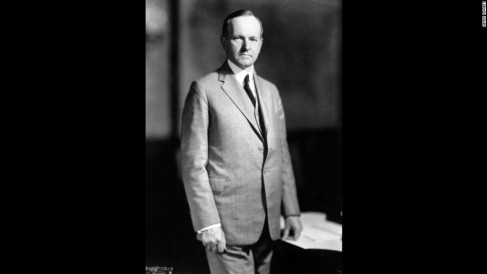As the details became known of what had transpired when government officials used patronage on friends in favored businesses, President Coolidge would set the tone, in February 1924. Coolidge would explain how he and those under his authority would act to restore integrity, punish the guilty and represent all, not merely a preferred few, Americans,
“Character is the only secure foundation of the state. We know well that all plans for improving the machinery of government and all measures for social betterment miserably fail, and the hopes of progress wither, when corruption touches administration. At the revelation of greed making its subtle approaches to public officers, of the prostitution of high place to private profit, we are filled with scorn and indignation. We have a deep sense of humiliation at such gross betrayal of trust, and we lament the undermining of public confidence in official integrity. But we cannot rest with righteous wrath; still less can we permit ourselves to give way to cynicism. The heart of the American people is sound…For us, we propose to follow the clear, open path of justice. There will be immediate, adequate, unshrinking prosecution, criminal and civil, to punish the guilty and to protect every national interest. In this effort there will be no politics, no partisanship. It will be speedy, it will be just. I am a Republican but I cannot on that account shield any one because he is a Republican. I am a Republican, but I cannot on that account prosecute any one because he is a Democrat…Distressing as this situation has been, it has its reassuring side. The high moral standards of the people were revealed by their instant reaction against wrongdoing.”
The same high standards are maintained when we, the sovereign people, hold our officials to account for mismanagement and dereliction of their sworn duties. Coolidge did more than outline what needed to be done, he did it by appointing a special counsel team to investigate and prosecute both civil and criminal wrongs, by issuing executive orders commanding entire departments be turned upside down to provide all the information investigators requested, by firing his Attorney General for refusing to comply, and welcoming the start of litigation well before the elections of 1924, even when it could have destroyed his chances for election. His clarity in both word and deed demonstrated the right way to handle government abuse of authority, even when it concerned inherited circumstances. Contrary to Hillary Clinton, it still makes a difference at this point.
